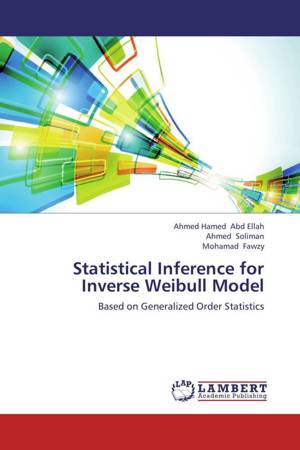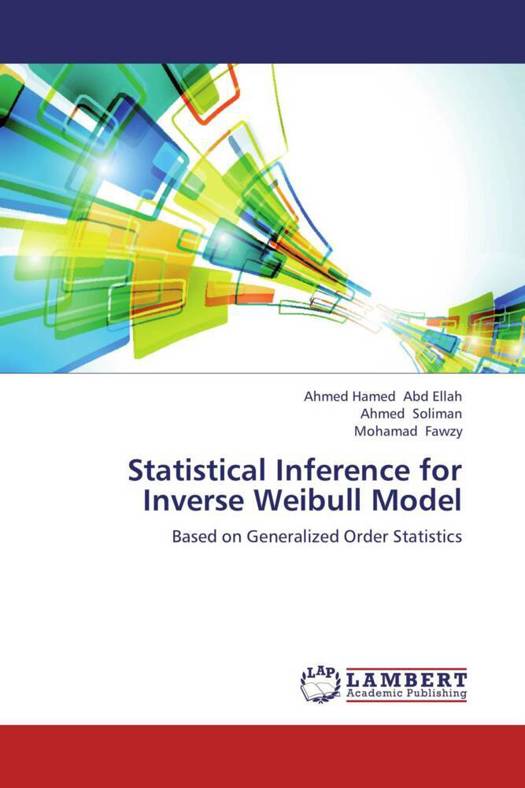
Je cadeautjes zeker op tijd in huis hebben voor de feestdagen? Kom langs in onze winkels en vind het perfecte geschenk!
- Afhalen na 1 uur in een winkel met voorraad
- Gratis thuislevering in België vanaf € 30
- Ruim aanbod met 7 miljoen producten
Je cadeautjes zeker op tijd in huis hebben voor de feestdagen? Kom langs in onze winkels en vind het perfecte geschenk!
- Afhalen na 1 uur in een winkel met voorraad
- Gratis thuislevering in België vanaf € 30
- Ruim aanbod met 7 miljoen producten
Zoeken
Statistical Inference for Inverse Weibull Model
Based on Generalized Order Statistics
Ahmed Hamed Abd Ellah, Ahmed Soliman, Mohamad Fawzy
Paperback | Engels
€ 104,45
+ 208 punten
Omschrijving
The main object of this book is to make statistical inferences (recurrence relations, estimation and prediction) for inverse Weibull model using generalized order statistics. This book has been organized and presented in six Chapters. Basic concepts and some other definitions and notations are given. A review of some of the work done concerning the generalized order statistics (progressive censored data, ordinary order statistics and lower k-record values) on the recurrence relations, the Bayesian and non- Bayesian approaches are given. We are concerned with the problem of estimation of the parameters and the reliability function of inverse Weibull model based on generalized order statistics. For this purpose, the maximum likelihood and Bayes estimators are used. Bayes estimators with respect to balanced squared error loss function and Balanced LINEX loss function are obtained. This was done under assumption of discrete-continuous mixture prior for the unknown model parameters. A Bayesian approach using Markov chain Monte Carlo techniques to generate from the posterior distributions is also developed. Our results are specialized to Progressively Type-II censored data.
Specificaties
Betrokkenen
- Auteur(s):
- Uitgeverij:
Inhoud
- Aantal bladzijden:
- 260
- Taal:
- Engels
Eigenschappen
- Productcode (EAN):
- 9783659345968
- Verschijningsdatum:
- 15/02/2013
- Uitvoering:
- Paperback
- Afmetingen:
- 150 mm x 220 mm
- Gewicht:
- 386 g

Alleen bij Standaard Boekhandel
+ 208 punten op je klantenkaart van Standaard Boekhandel
Beoordelingen
We publiceren alleen reviews die voldoen aan de voorwaarden voor reviews. Bekijk onze voorwaarden voor reviews.









